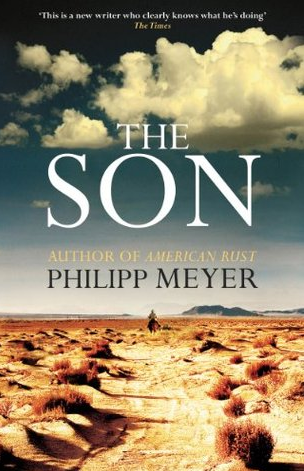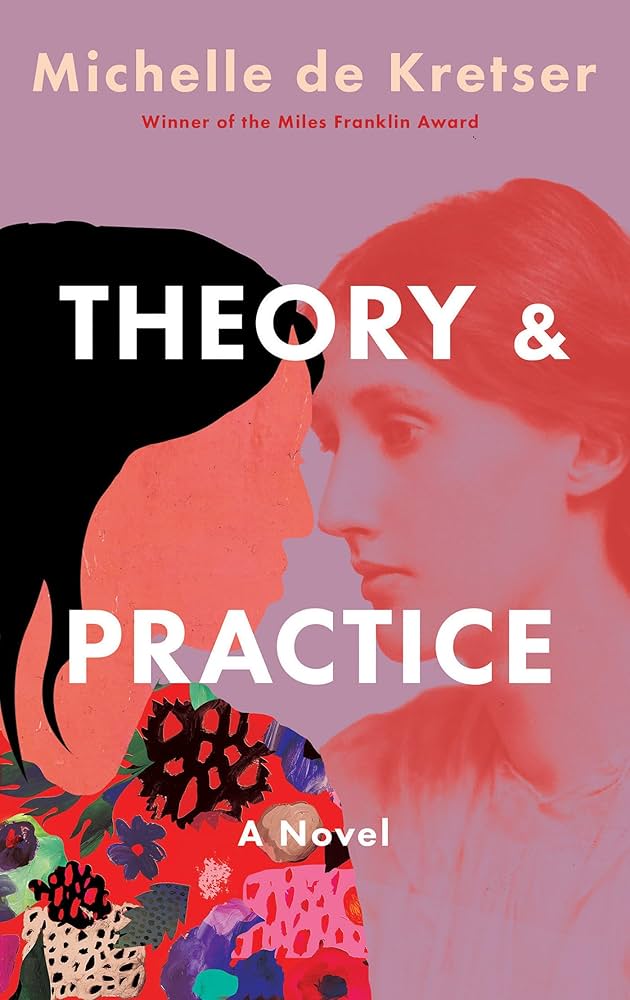Book by PHILIPP MEYER
Reviewed by
The first occurs in 1849: a band of Comanche raids the homestead of thirteen-year-old Eli McCullough while his father is out hunting for stolen horses. Eli’s sister and mother are killed, the home ransacked, and Eli and his brother taken captive. Almost seventy years later, the second family is murdered: this time Eli, now a decorated colonel, leads the charge against a neighboring family, the Garcias, whom he accuses of stealing cattle from the McCulloughs and wounding a family member. Eli’s son Peter reluctantly joins the raiding party; he spends the rest of his life regretting his actions and detesting his father’s bloodthirstiness.
The Son braids the alternating voices of three characters—Eli, Peter, and Peter’s granddaughter, Jeanne Anne. Each strand of storytelling is distinct: Eli’s chapters are first-person accounts taken from a 1936 WPA recording; Peter’s chapters are made up of diary entries from around the time of the Garcia killings; and Jeanne Anne’s chapters are close third-person narratives that alternate between a disoriented present (it is 2012, and an elderly Jeanne Anne doesn’t know why she’s lying on the floor of her mansion) with memories spanning her entire life.
Meyer has a fine line to walk as a novelist with this structure: his three characters need to tell their own stories and shed light on the other family members without giving away their stories or being too mysteriously reticent, which could become a form of gimmicky suspense. Meyer manages this masterfully in The Son: we see the characters develop as individuals as they account for themselves and for the evolution of the entire family.
Naturally, much of the family’s predilection for violence traces back to Eli. After being kidnapped, Eli is adopted as the son of a Comanche chief and spends four years living as a Comanche. Precociously resourceful and talented—he had killed a large panther before he was twelve—Eli becomes an excellent hunter, tracker, guide, and warrior in a tribe where a man’s position is tied to the number of scalps he collects on a raid. Eli also learns to sacrifice for the community: his Comanche father tells him that life isn’t worth living unless it’s lived for others. Consequently, Eli is at once respectful of life (Jeanne Anne remembers how attuned to nature her great-grandfather was, and how kind he was to her) and coldly dismissive of it: speaking of a woman who had burned his bow and moccasins, Eli says, “If she had been male, I would have killed her and not thought another thing about it.”
When smallpox decimates Eli’s tribe, he agrees to be sold back to the white community to provide money for the remaining tribe members. Though he lives as a member of the white community for the remainder of his life, he never fully re-assimilates. He remains a bit of an outsider, more comfortable riding with the Rangers than settling down with his wife, and in later life living in a small jacal or hut on his property instead of his own mansion.
Peter and Jeanne Anne also have outsider status. Peter, never comfortable with his father, falls in love with the one survivor of the raid against the Garcia family, and leaves his wife and children to be with her, casting himself definitively from the family. Jeanne Anne, an unusual girl, alone for much of her childhood, spent her free time riding roundup, working among men who mostly ignored her (though Eli always told her that she would do something important). She marries a successful businessman, who dies while their children are still young. Instead of letting someone else run the McCullough land (and its oil), Jeanne Anne takes care of the business herself. She discovers that men who took her husband’s word as bond now send her legal documents to sign. She can be respected but not liked or liked but not respected; she chooses the former.
Meyer is working in territory and time covered by Cormac McCarthy, but unlikeBlood Meridian, there is real tenderness in The Son. Even Eli has his tender moments, and proud and ruthless Jeanne Anne frets about not having provided adequate care or attention to her children. And against the backdrop of the crime that decimated almost all of Maria Garcia’s family, she and Peter find love. Still, Meyer’s novel is not for weak stomachs. He describes scalpings and murders and a particularly gruesome torture scene, the details of which I don’t want to remember but can’t seem to forget. In an interview on Amazon.com, Meyer said he was tempted to soften the violence, but opted for historical accuracy. In the same interview, Meyer summarized his research, which went far beyond reading (in his case, well over three hundred books) and involved animal tracking classes, combat skills training, bow and arrow hunting, and tanning hides. He even drank a cup of warm blood from the neck of a buffalo he’d shot because the Comanche did. When Eli says, “What [blood] actually tastes like is musk and salt,” I believe him.
The novel is as much about Texas as a specific Texas family, as much about the state’s bloody history of land and power struggles as the McCulloughs’ conflicts. I wish every state had a novel this good, one that pulls together such detailed accounts of both indigenous groups and settlers, the skirmishes between communities competing for land and power. I admire the way The Son gets at the twin sides of Texas history: the one that gloats about its unfettered pursuit of wealth, however destructive, while revering community and the vastland in its natural state.
It’s not clear to me which character is “the son” in Philipp Meyer’s novel. Is it Colonel Eli McCullough, adopted son of a Comanche chief? Is it Eli’s disloyal son Peter? Or is it Jeanne Anne, who as a child overheard her father say, “First you pray for sons, second you pray for oil,” and spent much of her adult life attempting to gain the respect that would have been a son’s to lose? The answer, probably, is all three.The Son is less about a singular example of sonship than it is about the difficulty of both earning one’s place in a family and pulling away.
Melinda Misener is from Portland, Maine and Northampton, MA. She currently lives in Ann Arbor, where she is an MFA candidate in the University of Michigan’s Helen Zell Writer’s Program.




